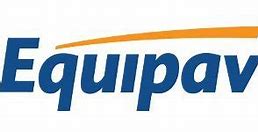Lot with airport in São Paulo and other 10 was auctioned for R$2.45bn; Aena was the only interested buyer
08/19/2022
/i.s3.glbimg.com/v1/AUTH_37554604729d4b2f9f3eb9ad8a691345/internal_photos/bs/2022/a/J/fplWLQRCWKoNJflxStDw/90739356-ec-20s-c3-a3o-20paulo-20sp-2004-12-2020-20setor-20a-c3-a9reo-20teme-20ter-20recupera-c3-a7-c3-a3o-20abortada-20por-20nova-20onda-20de-20co.jpg)
Main lot includes São Paulo’s Congonhas airport and 10 others in Mato Grosso do Sul, Minas Gerais, and Pará — Foto: Edilson Dantas/Agência O Globo
Brazil’s new round of airport auctions had little competition and was market by XP Asset’s debut in the industry. The main lot, which includes São Paulo’s Congonhas airport and 10 others in Mato Grosso do Sul, Minas Gerais, and Pará, was won by the Spanish company Aena. Despite the lack of competitors, Aena placed a bid of R$2.45 billion, or 231.02% over the minimum price.
Besides this initial payment, variable payments are foreseen throughout the contract, equivalent to a percentage of the gross revenue, which will reach 16.15% as of the ninth year of the concession.
Capital expenditure of R$5.9 billion is foreseen in the lot, in a 30-year concession. According to the feasibility studies, the forecast for passenger traffic in the lot in 2023 is 24.7 million. The projection for 2052 is 37.5 million passengers.
Besides crown jewel airport Congonhas, the lot includes the airports of Campo Grande, Corumbá, and Ponta Porã, in Mato Grosso do Sul; Santarém, Marabá, Parauapebas, and Altamira, in Pará; Uberlândia, Uberaba, and Montes Claros, in Minas Gerais.
Aena joined the Brazilian market by winning an auction to operate six airports in the Northeast region in 2019 – with fierce competition at that time. Today, the company operates terminals in Recife (Pernambuco), Maceió (Alagoas), João Pessoa (Paraíba), Aracaju (Sergipe), Juazeiro do Norte (Ceará), and Campina Grande (Paraíba). The company plans to reach an investment figure of R$1.4 billion by the end of 2023 in these assets. Globally, the group operates 46 airports in Spain (including Barajas, in Madrid), one in the United Kingdom (London-Luton), 12 in Mexico, two in Colombia, and two in Jamaica.
The operator is controlled by the Spanish government, which holds a 51% stake. The remaining shares are traded on the stock exchange.
In the business aviation lot, the winner was the infrastructure fund XP Infra IV FIP, which took the airports of Campo de Marte, in São Paulo, and Jacarepaguá, in Rio de Janeiro. The group, which was the only interested buyer, placed a bid of R$141.4 million for fixed concession payment, the minimum amount foreseen in the call for bids.
The move meant the entry of XP Asset into the industry. The asset management company signed a partnership with the French company Egis, which had already participated – not very successfully – in the airport concessions market in Brazil. The company holds a 2.94% stake in Aeroportos Brasil Viracopos, which controls the airport of Campinas (São Paulo), together with companies Triunfo and UTC. Today, the contract is on its way to being returned amid a turbulent process. In January this year, the French group was joined by the fund Tikehau Capital, which holds now a 40% stake. The French state-owned company Caisse des Dépôts, which previously held control of the company, now holds 34%. The remaining 26% portion is held by executives and employees.
The only lot that attracted competition was the North one, which includes the airports of Belém (Pará) and Macapá (Amapá) and foresees investments of R$875 million in construction works. The Novo Norte consortium (Socicam and Dix Empreendimentos) won the bidding, after a long dispute through an open outcry auction. The company offered a fixed concession payment of R$125 million, or 119.78% more than the minimum value defined in the call for bids.
The company beat Vinci Airports, which offered R$115 million, or 102.19% more than the minimum value.
The 30-year contract foresees a capital expenditure of R$875 million. Besides the fixed concession payment offered in the auction, there will be variable fees starting in the fifth year of the concession. The percentage will reach 7.09% starting in the ninth year of the contract.
The airports included in the lot are expected to draw 4 million passengers in 2023. Passenger traffic is projected at 9 million in 2052, according to feasibility studies.
Socicam, which runs bus terminals, has started operating smaller airports in recent years and today controls 24 facilities in seven states. Pernambuco-based Dix Empreendimentos is already working in partnership with Socicam in the concession of 11 regional airports in São Paulo, won at an auction last year.
*By Taís Hirata — São Paulo
Source: Valor International

/i.s3.glbimg.com/v1/AUTH_37554604729d4b2f9f3eb9ad8a691345/internal_photos/bs/2022/3/z/SRGh64Q6yOR8xLSqSUtw/img20220531152101532.jpg)
/i.s3.glbimg.com/v1/AUTH_37554604729d4b2f9f3eb9ad8a691345/internal_photos/bs/2022/1/y/wwpuKHRAOo0wOdl1RIQA/18agr-100-trigo-b8-img01.jpg)

/i.s3.glbimg.com/v1/AUTH_37554604729d4b2f9f3eb9ad8a691345/internal_photos/bs/2022/e/x/zY3UhpTzAwqMNlsE325g/190319cosan220.jpg)
/i.s3.glbimg.com/v1/AUTH_37554604729d4b2f9f3eb9ad8a691345/internal_photos/bs/2022/Y/f/SOzwAgRbu0qQwM4cri4A/160822zodiac29.jpg)
/i.s3.glbimg.com/v1/AUTH_37554604729d4b2f9f3eb9ad8a691345/internal_photos/bs/2022/1/G/dbGRqzSuKwtKsUdOyJfw/150822eugenia29.jpg)
/i.s3.glbimg.com/v1/AUTH_37554604729d4b2f9f3eb9ad8a691345/internal_photos/bs/2022/Y/T/zIbpCXSBq4EZ5BXgFlrQ/ibm-howard-20boville.jpg)
/i.s3.glbimg.com/v1/AUTH_37554604729d4b2f9f3eb9ad8a691345/internal_photos/bs/2022/u/x/qW31N3Q4uedxwj08zMWw/95059818-pixabay-20license-20gr-c3-a1tis-20para-20uso-20comercial-20atribui-c3-a7-c3-a3o-20n-c3-a3o-20requerida-20mensagens-20de-20texto-20cel.jpg)
/i.s3.glbimg.com/v1/AUTH_37554604729d4b2f9f3eb9ad8a691345/internal_photos/bs/2022/j/P/VvhH4wSre2EOkEgjoOIA/desembarque-de-fertilizantes-porto-paranagua-divulgacao.png)